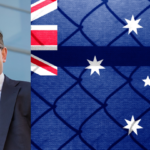Australia Again Misses Deadline on OPCAT, the UN Rights Treaty to Protect Detainees

Australia has again missed its deadline for implementing an international anti-torture protocol that the nation agreed to comply with in December 2017.
The deadline, last Friday, 20 January 2023, was actually the third such deadline the country has missed in terms of the rights agreement.
The OPCAT (Optional Protocol to the Convention Against Torture) requires a nation that ratifies it to establish a national preventive mechanism (NPM), which involves independent inspections of places of detention with the aim of preventing human rights abuses against detainees.
The failure to roll out the globally-lauded system to uphold the rights of detainees – which includes those inside adult and youth prisons, immigration centres and closed mental health facilities – for a third time is hardly surprising as Australia has consistently dragged its feet on the matter.
The OPCAT was adopted by the UN in 2002. Australia signed the treaty in 2009. However, it wasn’t until the mid-2016 revelations regarding the torture of youths at Darwin’s Don Dale facility shamed the nation that then attorney general George Brandis agreed to ratify it in early 2017.
And last year, when the UN subcommittee on the prevention of torture (SPT) visited Australia to monitor implementation, as per the agreed terms of the protocol, NSW and Queensland authorities refused to allow the inspectors into certain facilities. And the trip was cut short.
Waiting for it to blow over
Australia has missed its OPCAT deadline at a time when its rights record has just been slammed by Human Rights Watch, and the Global Alliance of National Human Rights Institutions early last year warned that the status rating of our human rights commission may be downgraded.
The Australian OPCAT system is to be a federated network of NPMs with the Commonwealth Ombudsman being the overseer of the nationwide inspection teams. And when it came to missing the deadline last year there were suggestions coming from the states about a lack of federal funding.
The reverse side of the coin, however, was that no state or territory had both passed laws facilitating the OPCAT and established which agency would run its NPM. Although most states and territories had established at least one of these requirements.
But the standouts jurisdictions were NSW and Victoria, which hadn’t passed laws or appointed an NPM. And as the country again floundered on the international human rights stage last week, Queensland was also classed as a renegade state in terms of noncompliance.
Operating nationally
But in a sign that the nation’s OPCAT system is running at least in part at the federal level, the Commonwealth Ombudsman Iain Anderson released his agency’s 2021-22 Annual Report of the Commonwealth National Preventive Mechanism under the OPCAT.
The report made 18 recommendations to Home Affairs regarding its onshore immigration centres. And the department has agreed to 13 of the recommendations put to it, with it now up to the Ombudsman to monitor that the reforms are implemented.
As for the national rollout, Anderson noted in the report that he was looking forward “to continuing to work with my NPM counterparts across Australia and internationally as OPCAT enters full implementation in January 2023”.
And he added that the federal government, the ACT, the Northern Territory, SA, WA and Tasmania had all nominated NPM bodies, whilst NSW, Victoria and Queensland are yet to have charged any agency with the mission of curbing rights abuses on the part of government officers.







